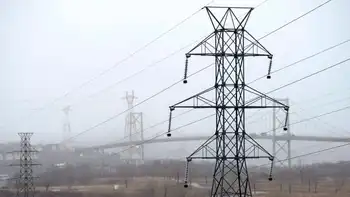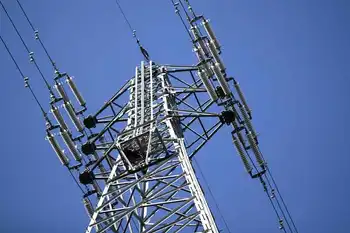Rolling blackouts as Texas heats up
By Houston Chronicle
Electrical Testing & Commissioning of Power Systems
Our customized live online or in‑person group training can be delivered to your staff at your location.

- Live Online
- 12 hours Instructor-led
- Group Training Available
Shortly after 4 p.m. Monday, officials with the Electricity Reliability Council of Texas, the organization that monitors the power network for about 85 percent of the state, declared an emergency and asked power distributors to turn off about 1,000 megawatts of power. The cuts were spread throughout the state, with Houston-based CenterPoint Energy cutting power for 15-minute intervals on the power lines it operates to as many as 78,000 customers, according to spokeswoman Leticia Lowe.
In Dallas, about 80,000 TXU Electric Delivery customers saw their power go out for 15-minute intervals, said spokeswoman Carol Peters. One megawatt powers about 210 homes, according to TXU, meaning the 1,000 megawatts of rolling outages likely impacted the equivalent of 210,000 homes. The typical daily usage for Texas in April is about 40,000 megawatts, but the state pushed 52,000 megawatts on Monday, said ERCOT spokesman Paul Wattles. By 6:15 p.m., ERCOT declared the emergency over and stopped the rolling blackouts.
"We're doing all we can to avoid this same situation, but we're asking for voluntary conservation measures statewide," he said. Suggested measures include turning thermostats up, turning off unneeded lights and avoiding use of non-essential electric equipment and appliances. While the rolling blackouts were an inconvenience to many, Wattles said they help avoid uncontrolled blackouts that could effect more customers for a longer period of time. A combination of factors led to the emergency Monday.
April and October are the two so-called "shoulder months," periods of mild weather when power plant operators schedule annual maintenance. A large percentage of the 77,000 megawatt-generating capacity within the ERCOT system can be unavailable at those times. Usually that isn't a problem at this time of year, but with temperatures reaching 100 degrees in parts of the state and 89 in Houston, power demand spiked beyond expectations. The normal high in Houston this time of year is 79 degrees. The record, 92 degrees, was hit in 1987, according to Weather Central.
ERCOT officials knew earlier in the day Monday there would be a spike in demand, so at 3 p.m. they made a request to power producers to fire up all the spare capacity they could. In the Houston area that meant operators of plants run by NRG Texas, formerly known as TexasGenco, activated between 1,000 megawatts and 1,500 megawatts of capacity that were not scheduled to run, according to spokesman Joe Householder. That request was not enough, so at 4 p.m. ERCOT asked for users with interruptible load agreement, primarily industrial power users who can stop using power on short notice, to make available some 1,150 megawatts of their demand for the rest of the system.
Taking this second step is rare - the last time ERCOT drew on interruptible loads was August 1999 - but it usually prevents the need for further measures. At about 4:05 p.m., however, four power units at plants throughout Central and North Texas unexpectedly went out of service, according to ERCOT. This took about 920 megawatts of power off the grid suddenly, creating the need for the rolling blackouts. ERCOT would not name the owners of the power plants, but a Texas Public Utility Commission spokesman said the units were owned by CPS Energy in San Antonio and TXU Energy in Dallas.











